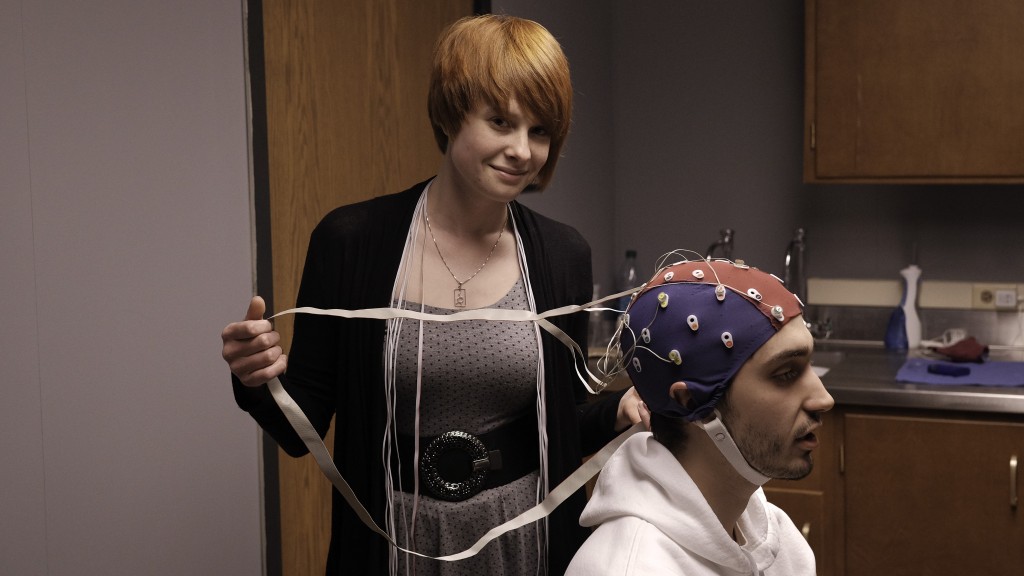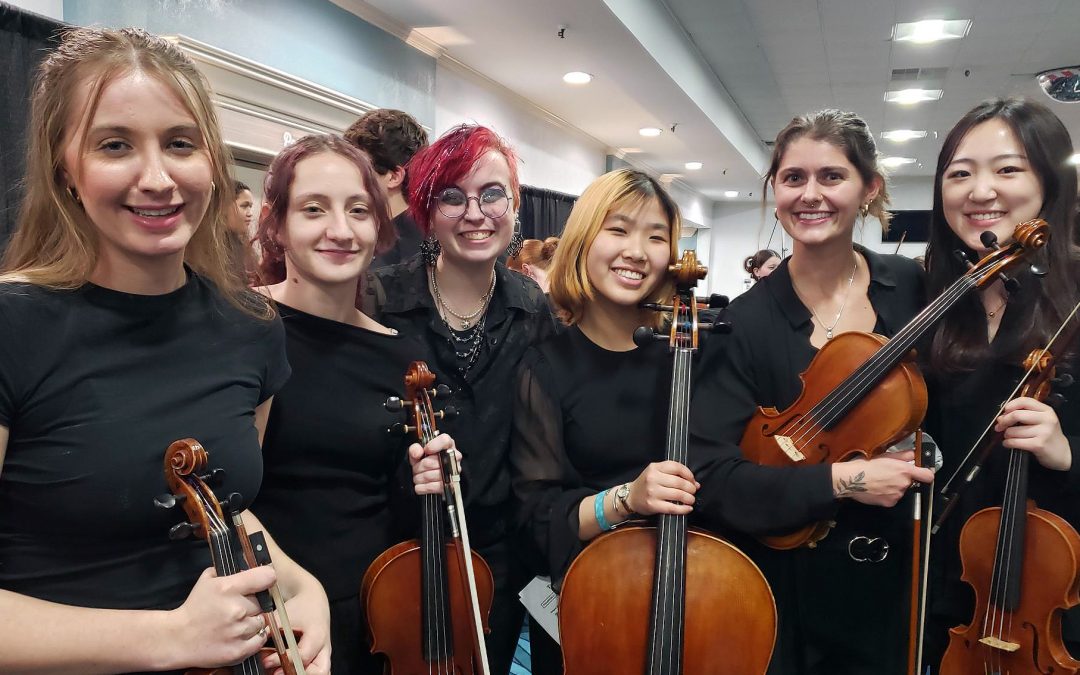
Neuroscience student Emma Trammel demonstrates how she monitors a research subject’s brainwaves. (Photo by August Jennewein)
Emma Trammel knew what she wanted to study before she even knew what it was called.
When she was in high school, her psychology textbook had a brief chapter about brain structure. When she arrived at the University of Missouri–St. Louis, she realized that the subject that fascinated her was called neuroscience and that she could earn a certificate in it along with her psychology degree.
“I found the brain as a whole to be fascinating,” Trammel said. “The psychology of people is really cool, but I’m more interested in what is going on in the brain: What anatomical differences there are, brain activity and how it’s affected by the outside world.”
Trammel received a 2015 College of Arts and Sciences Undergraduate Research Grant to study how people process language. The grant funds lab equipment and will pay for her to present her research at a professional conference.
In Trammel’s study, participants will be exposed to a prime, or sample word, that will be subconscious, meaning they won’t be aware they’ve seen it. Then, they will see words on a computer screen and identify whether the samples are actual words or made up. Trammel’s equipment then tracks their brain waves and how quickly participants respond when seeing certain words.
The research measures orthographic processing skills, or participants’ abilities to process language. In orthographic processing, people identify a word according to its appearance. Most people read by identifying letters and words with specific sounds.
People with dyslexia have difficulty using sounds to identify letters and words, which makes reading difficult. By using orthographic processing to identify words, people with dyslexia could read more easily, Trammel said.
“This could show that people with dyslexia do have higher orthographic processing skills,” Trammel said. “Maybe instead of trying to teach people to sound out words we should target skills they already have to help them be able to read better.”
The research can also track whether people with low literacy skills are as affected by the primes because they may not have been exposed to as many words. Someone with low orthographic skills might not recognize a word that’s spelled incorrectly or a word that is made up.
Inspiration for Trammel’s study came from an unlikely source — those Internet memes that have a paragraph with letters scrambled up. The idea is that people can still understand the paragraph with the scrambled letters, which got Trammel thinking about adapting the concept for a study.
“I got into the idea of how seeing anagrams of words on an unconscious level will help you identify words better because you’ve already been exposed to the word even though it’s mixed up,” she said.
Trammel has been an impressive student, and her work could significantly improve the understanding of how different people read, said Suzanne Welcome, assistant professor of psychology.
“We know that having books around is important for kids who are learning to read,” Welcome said. “What we don’t know yet, and Emma’s project will help tell us, is how being exposed to print sets up the brain to get information from words very quickly.”















